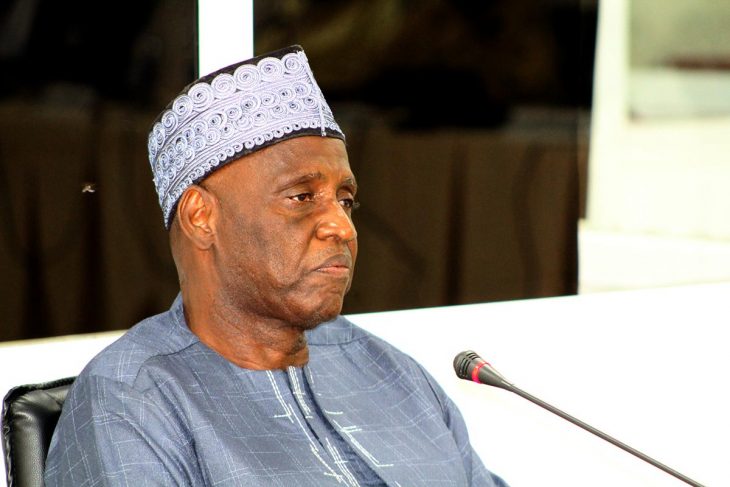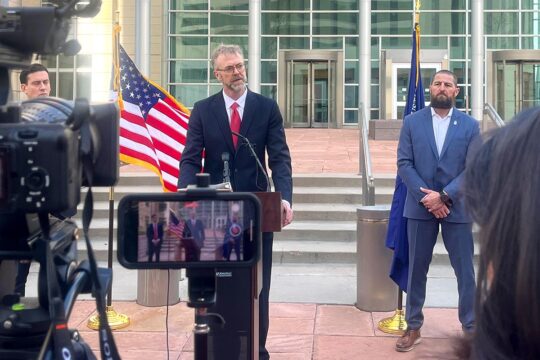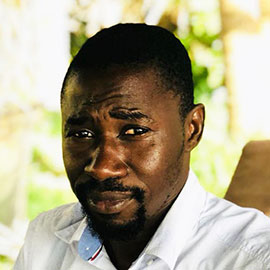In December 2015, Gambia’s president Yahya Jammeh declared the small West African country of 2 million people an Islamic state. The news was particularly disturbing for the little over 130,000 Christian population. At the time, it wasn’t clear if the republican constitution would be removed and if the secular nature of the state and its courts would be changed.
Jammeh had created a religious image for himself. He walked around with what appeared to be a Quran and Muslim prayer bids. He surrounded himself with clerics trained in Saudi Arabia. But for his critics, religion was nothing more than a tool for political control. Philip Saine, a member of the Gambian Christian Council whose book “Challenges of Gambian Churches During Yahya Jammeh’s Era” was admitted into evidence by the Truth, Reconciliation and Reparations Commission (TRRC) - testified before the TRRC that after Jammeh’s 2015 declaration Gambian Christians made efforts to dissuade the president from turning the country into an Islamic State. Their goal was to seek clarification on what the declaration meant for the Christian faith. But Jammeh refused to meet with Christian leaders who would later get a letter from him saying that his declaration was “not negotiable” but that the rights of Christians would be respected. This did little in allaying their fears.
Expelling people for their religious belief
Jammeh ruled the Gambia for 22 years until January 2017. And it isn’t only Christians who claim to have been oppressed under his rule. Some of the victimized faith groups are Muslims who belonged to a different sect than Jammeh’s Saudi-trained clerics sitting at the country’s Supreme Islamic Council. Under Jammeh, the Council had much influence. Jammeh needed the Council to control the 90% Muslim population. And the Council’s members needed his protection to strengthen their control over the society.
Ndigal is one of the Muslim minority faith groups that claimed they suffered state oppression. They are followers of cleric Muhamadou Habibou Secka who later came to be known as Ndigal, a wollof word for divine revelation. The faith group started in Kerr Mot Ali, a settlement in Gambia’s Central River Region, about 4 hours drive from Banjul, the capital.
In 2002, Muhamadou Habibou Secka and his followers – said to be about 5000 people – stopped the five daily prayers ritual Muslims do. That was the beginning of their trouble with the state, testified Yunusha Ceesay, a member of Ndigal. Jammeh and the Supreme Islamic Council would not have it. The government said that the followers of Ndigal have forcedly closed the village mosque, preventing people from praying there. For the authorities, Ndigal’s reported claims to be God was offensive to public morality and public order.
The former governor of the region Ganyie Touray told the TRRC that he received an executive order to reopen the mosque and expel the followers of Ndigal from the Gambia. This took place in January 2009 with the help of paramilitary forces, he said.
“Did you care to find out about the authority on which that executive order was based?” asked the TRRC lead counsel Essa Faal.
“This came from the Office of the President and it was signed by the secretary general. It was for me to take action. What am I going to ask about?”
“You believe it was lawful to expel people out of their village because of their religious belief?”
“What I believed is that what they were doing was not in line with Islam and the laws of this country.”
“I think you and I and other Muslims would agree that what they were doing was not in line with Islam but it is not about you and I. The question is: Do you think it is right to expel people from their own country because of their religious belief?”
“Those who gave the instructions are the ones who know the law. I am not a lawyer and I do not know the law.”
“Mr Touray, you were the governor.”
“Yes, that is true.”
“So, your ignorance of the law is not an excuse.”
“Yes, that is true.”
“And even you as a person, do you believe that it is right to expel people from their own homes simply because of their religious belief?”
“That is unlawful.”
“Therefore, do you believe what you did was unlawful?”
“I do not believe what I did was unlawful. I was given an instruction and I carried it out.”
“You have just accepted that what you were told to do was unlawful.”
“Yes, to forcefully expel someone from his residence. There are procedures to observe.”
“But you carried out that order, didn’t you?”
“Yes, I did.”
“So you therefore agree that you implemented an unlawful order?”
“But for me, the actions were given to me by people I took authority from…” explained the former governor.
Ndigal’s religious leader Habibou Secka was threatened and arrested but he refused to bow to state authorities. He died in 2007. On October 12, 2017, nine months after Jammeh had fled the Gambia, the country’s High Court ruled that the actions of the state against Ndigal were illegal and ordered the followers of the sect to return to their settlement.
Tensions with the Supreme Islamic Council
There has been brewing tension between religious traditionalists and the Saudi-trained clerics who controlled the Supreme Islamic Council. While the traditionalists were in control of most religious schools in the country, the clerics who controlled the Council tended to have the backing of the state. Former Imam of the State House Imam Abdoulie Fatty – who is currently the Council’s secretary general – would use the pulpit, the state television and the radio to attack the Ahmadiyya Muslim Community, a Muslim sect that the Saudi-trained clerics say are not Muslims.
“On 23 June 1997, we sent a letter to the Office of President Yahya Jammeh complaining about the attack made by Imam Fatty on our sect but we were never replied by Jammeh,” testified Baba Trawalley, leader of the Ahmadiyya Muslim Community in Gambia. “We cannot be part of a political council [the Supreme Islamic Council] that only came into existence in 1992 while our Jama’at came into existence in 1889. We are not expected to beg to be part of the Council. We can only be a member if we are officially invited”, Trawalley said.When conflict arose between the traditionalist clerics and the Council, Jammeh took sides in favour of the Council.

Imam Ba Kawsu Fofana was a fearless critic of Jammeh. The owner of a Quranic memorization school, Kawsu was arrested several times by state agents, leading to the closing down of his school. In 2012, he was arrested and held incommunicado for nine days during which he was reportedly tortured. He then fled the country for Casamance, in the south of Senegal, where he lived until 2015 when he was allowed to return. Kawsu directly blamed the Supreme Council for his arrest.
Both the President of the Council Imam Momodou Lamin Touray and its secretary general Imam Abdoulie Fatty have provided the TRRC with written statements. When public hearings resume on February 17 it may be their turn to respond to their critics.







